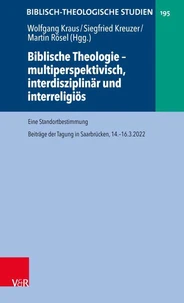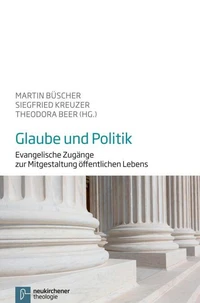Der Antiochenische Text der Septuaginta in seiner Bezeugung und seiner Bedeutung
Par : , , , ,Formats :
Disponible dans votre compte client Decitre ou Furet du Nord dès validation de votre commande. Le format PDF est :
- Compatible avec une lecture sur My Vivlio (smartphone, tablette, ordinateur)
- Compatible avec une lecture sur liseuses Vivlio
- Pour les liseuses autres que Vivlio, vous devez utiliser le logiciel Adobe Digital Edition. Non compatible avec la lecture sur les liseuses Kindle, Remarkable et Sony
 , qui est-ce ?
, qui est-ce ?Notre partenaire de plateforme de lecture numérique où vous retrouverez l'ensemble de vos ebooks gratuitement
Pour en savoir plus sur nos ebooks, consultez notre aide en ligne ici
- Nombre de pages284
- FormatPDF
- ISBN978-3-647-53608-8
- EAN9783647536088
- Date de parution20/02/2013
- Protection num.pas de protection
- Taille3 Mo
- Infos supplémentairespdf
- ÉditeurVandenhoeck & Ruprecht
Résumé
The Antiochene or Lucianic text is one of the most important text forms of the Septuagint, the Greek translation of the Old Testament. Its specific form has been understood as the result of the recensional activity of Lucian the martyr (312). Yet, agreements with Josephus, the New Testament, the Old Latin translation, and now especially with the biblical texts from Qumran show that it (also) must be old and close to the original Septuagint.
The evaluation of the Antiochene text is of importance not only for the textual history of the Septuagint but also for the description of its original character and because of the relation to its parent text, even for the history of the Hebrew text. This collection of papers presents new insights and actual discussion concerning the history and the importance of the Antiochene Text of the Septuagint.
With contributions by Felix Albrecht, Natalio Fernandez Marcos, Philippe Hugo, Jong-Hoon Kim, Thomas Kraus, Siegfried Kreuzer, Martin Meiser, Adrian Schenker, Marcus Sigismund, Victoria Spottorno.
The evaluation of the Antiochene text is of importance not only for the textual history of the Septuagint but also for the description of its original character and because of the relation to its parent text, even for the history of the Hebrew text. This collection of papers presents new insights and actual discussion concerning the history and the importance of the Antiochene Text of the Septuagint.
With contributions by Felix Albrecht, Natalio Fernandez Marcos, Philippe Hugo, Jong-Hoon Kim, Thomas Kraus, Siegfried Kreuzer, Martin Meiser, Adrian Schenker, Marcus Sigismund, Victoria Spottorno.
The Antiochene or Lucianic text is one of the most important text forms of the Septuagint, the Greek translation of the Old Testament. Its specific form has been understood as the result of the recensional activity of Lucian the martyr (312). Yet, agreements with Josephus, the New Testament, the Old Latin translation, and now especially with the biblical texts from Qumran show that it (also) must be old and close to the original Septuagint.
The evaluation of the Antiochene text is of importance not only for the textual history of the Septuagint but also for the description of its original character and because of the relation to its parent text, even for the history of the Hebrew text. This collection of papers presents new insights and actual discussion concerning the history and the importance of the Antiochene Text of the Septuagint.
With contributions by Felix Albrecht, Natalio Fernandez Marcos, Philippe Hugo, Jong-Hoon Kim, Thomas Kraus, Siegfried Kreuzer, Martin Meiser, Adrian Schenker, Marcus Sigismund, Victoria Spottorno.
The evaluation of the Antiochene text is of importance not only for the textual history of the Septuagint but also for the description of its original character and because of the relation to its parent text, even for the history of the Hebrew text. This collection of papers presents new insights and actual discussion concerning the history and the importance of the Antiochene Text of the Septuagint.
With contributions by Felix Albrecht, Natalio Fernandez Marcos, Philippe Hugo, Jong-Hoon Kim, Thomas Kraus, Siegfried Kreuzer, Martin Meiser, Adrian Schenker, Marcus Sigismund, Victoria Spottorno.



